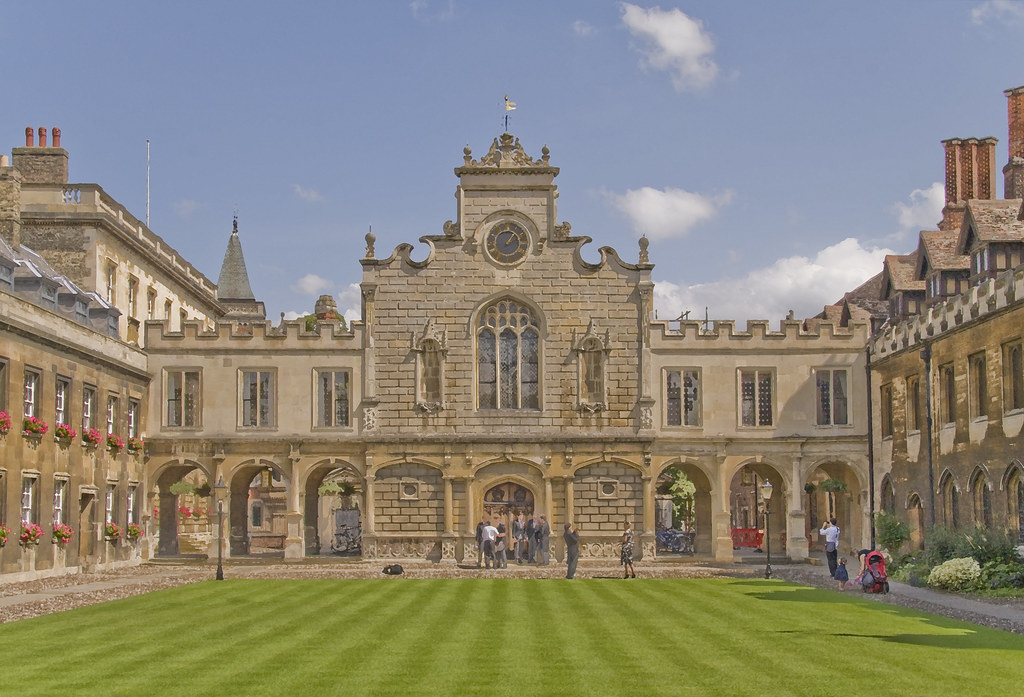18 June 2020
Home Learning
Split the universities.
By Robert Kilconner
It would be wasteful and sad if the effect of lock-down was not to move things along. For some time the medical profession has been divided over whether or not online consultations were the way forward. Well, they have now been tried on a grand scale and it would be odd to go back to a world where the vast majority of appointments were physical. No doubt it will take time to find the correct balance between the conventional and the cyber, but the direction of travel is obvious in a journey which will presumably be accelerated if the Government fulfils its promise to get fibre broadband in place across the land.
What about education though, and tertiary education in particular? Universities have generally moved to online lectures and tutorials during the health emergency with Cambridge saying that it will not return to normal lecturing until the end of the next academic year. The real question is why return at all?
For some time the higher educational model has been under stress. I don’t mean about money though there has certainly been tension over that, but rather about something more fundamental. What is the relationship between the research function of a university and the role which universities have in providing a third tier of education for young people? Does it make sense to combine both functions in the same institutions?
Once upon a time it did. Young men and women went to university to sit at the feet of the great masters and to absorb learning, and a more general philosophy, as they sat there. In most universities that was done through a combination of lectures and tutorials and, before the days of the internet. inevitably required physical presence. Students had to be there and from that fact flowed the student life with its emphasis on sport, partying and lots of less respectable things as well. Now it could be done differently and it is not obvious why the lectures, the tutorials and the student life should all come from the same place.
Suppose that the University of Newcastle had a particularly strong mediaeval history faculty staffed with top-class researchers and brilliant lecturers. Why should students throughout the country not be able to sign up for its courses without ever going anywhere near Newcastle at all, except, perhaps, for an examination at which they are graded? For the requisite fee (and the fact that this excellent course commanded such wide demand should cut the costs per student of giving it), the student would buy participation in the lectures together with online tutorials. Perhaps there would also be a number of physical tutorials each term to be attended by visiting Newcastle or, if the course was popular enough, by visiting the nearest centre at which the University gave tutorials.
That would be all right as far as the academic side went but what about the student life? We all know that students attend university for experience as well as learning and how would the rowing clubs and rugby clubs flourish if the participants were not centred at the site? The answer to that might be to split the social side off completely so that someone who lived in Birmingham but was taking the Newcastle course would do his or her sport and partying in the city of residence, joining the Birmingham student rowing club and attending the Birmingham student bars and nightclubs according to taste. Meanwhile any Newcastle resident student who wish to take a Birmingham course in anthropology would conduct a social life in the Newcastle.
It would all be very different but there are obvious advantages. First, courses could be followed by more students. There would be no physical restriction on the size of lectures and, provided that sufficient staff were employed to carry out the tutorials, there is no obvious bottleneck there either. Organising exams would be easy enough. For popular courses there could be a number of different centres.
Second, costs would come down dramatically as popular courses could affect economies of scale. Third, from the student point of view, it would be more convenient. Those who wished to study from home could do so but there would be no objection to halls of residence in substantial towns, or for outward bound types on remote mountainsides, at which students doing courses provided by different Universities could live. Those halls could have cricket clubs, rowing clubs, rugby clubs, mountaineering clubs, debating societies, bars and all the other accoutrements of student life.
To carry out the change in this scale would mean working through a series of pilots. The Open University has already paved the way with its home learning and no doubt much can be learned from its experiences. Nonetheless what is needed is for a conventional and prestigious university to run some of its courses for off-site learning only. Come on Cambridge. You have said that you will be doing away with physical lectures for the new academic year. Go the whole hog. Follow through.


